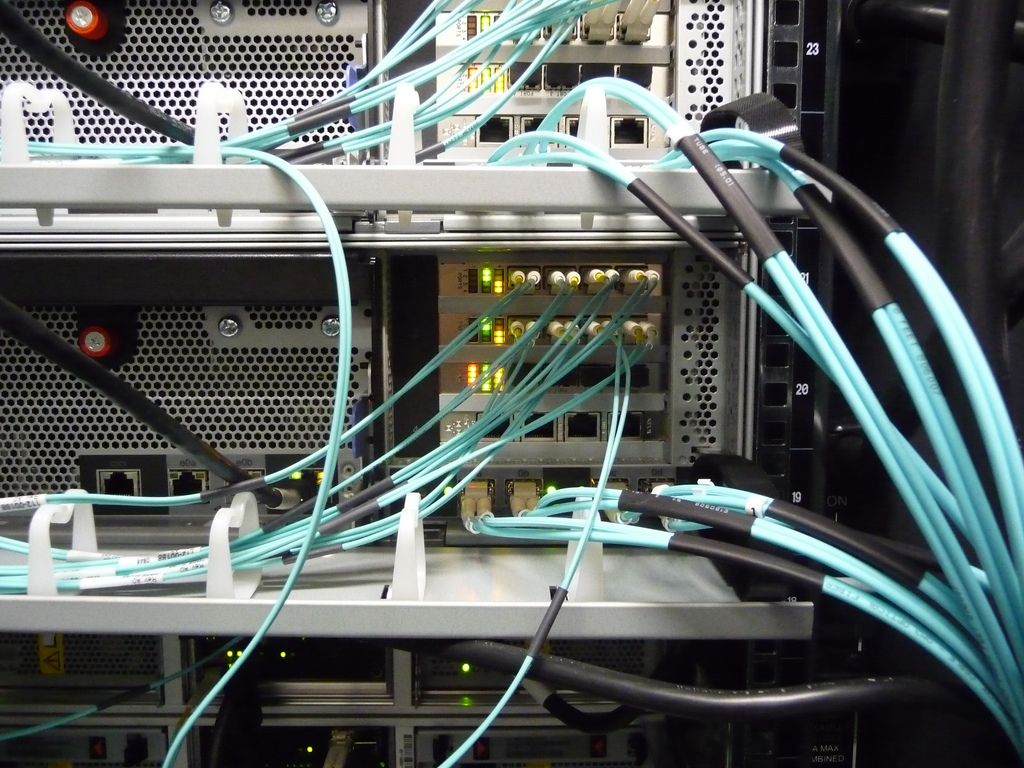Govt too bureacratic for Intel cloud group

update Government has been left out of the steering committee of Intel's elite industry datacentre group the Open Data Center Alliance to spare discussions from being bogged down in regulation talks.

(Netapp FAS3170 Controller image by Simon Picken, CC2.0)
The Open Data Center Alliance is an independent group of end-users which aims to define common use cases and deployment models for cloud and datacentre infrastructures. Members have agreed to follow the roadmap to be produced by the group and they will fund its operations following an initial seed capital from Intel. The group presently has 120 member organisations.
Regional general manager of datacentre products, Jason Fedder, said the group will keep the bureaucracy of governments out for now. Instead the group will be run by a panel of billion-dollar companies like the National Australia Bank, Shell, BMW and Deutsche Bank.
"[The] telcos are here, the banks are here. Deliberately government is not here because the steering committee chose to limit their initial focal point," Fedder told journalists yesterday in Sydney.
"[The group] really didn't want to get into the regulatory environment and [instead] to really focus on delivering open standards.
"You would [consider government a large customer] and maybe at a later date the steering committee will, but for now it has chose the major players in the space."
Those players have a total annual IT spend of some $50 billion, but governments are also spending up on datacentres around the world.
In Australia, NSW is gunning to consolidate its 130 datacentres into two super centres, Queensland recently handed out $12 million to shrink its datacentres, and Victoria is seeking a single source for its datacentre requirements. The Federal Government is aiming to save $1 billion on datacentres, and is irked by how many of the facilities it's running.
The United Kingdom government will cut hundreds of datacentres down to a dozen that will run a cloud computing network dubbed G-Cloud. Likewise, the United States Federal Government has opened its coffers to consolidate its 1100 datacentres.
Fedder said that membership to the Open Data Centre Alliance is a "big commitment" because it requires staff to be devoted to the group. Steering committee members spread across the United States, Europe and Australia meet via video conferencing once a month, and second-tier members meet weekly.
Intel is keeping mum on some as-yet unannounced steering members and on whether non-participants Google and Amazon will acquiesce to the group's eventual standards.
The initial focus areas of the group include infrastructure compliance, unified networking, trusted computing pools, and licensing models.
Intel said that the group won't clash the the myriad of existing associations and datacentre groups that work in the same field, and will adopt standards that have already been scrutinised and approved.
Standards already handed down by associations include broad specifications (DMTF, IETF, OASIS, and W3C) specific technologies (PCI-SIG or USB Device Working Group), and ecosystem development (Blade.org or the Itanium Solutions Alliance).
Since the publication of this article, Intel has released a statement saying that it had erred by saying that government was not welcomed to the group.
"We were actually wrong about governments and the Open Data Center Alliance. Although there were no government agencies on that slide of logos from the launch they are welcome to join the ODCA," the company said.
Updated at 6:18pm, 10 November 2010: additional comment included from Intel.